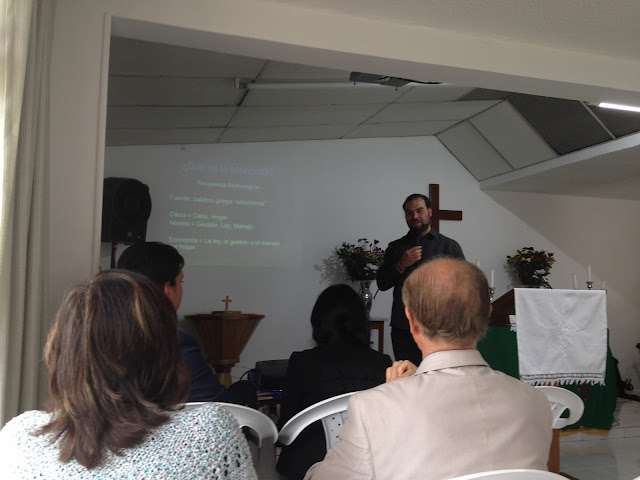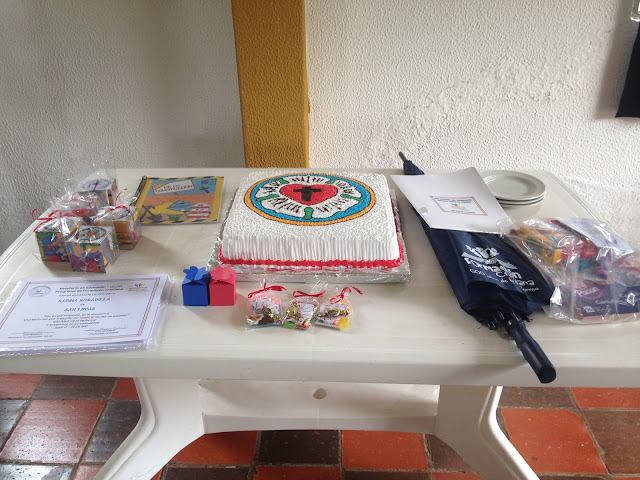"For Every Dream There is a Color"
 |
| Angelica at the Peace Messengers Training in Jerusalem. Photo from LWF website. |
Peace is built between two willing partners.
In this space, so fabulous, there were many who reached out for peace: peace that transforms and sets free, peace that does not oppress, but instead nurtures love, self-control, respect and tolerance.
The experience with the Lutheran World Federation (LWF) Peace Messengers was wonderful and I would like to thank LWF for this great gift.
When I was a child, standing in the streets near my house, I had to watch my friends carry in their arms one of their friends whose chest had been pierced by a bullet.
I had to witness the death of many, and see how children joined armed groups because they no longer had anything to eat.
When violence touches the doors of a home, of the neighbors, of the whole city, it becomes somewhat normal, and it is seen as a fact without much importance.
What is really dangerous is wen no one speaks out about violence, terrorism, state crimes, and abuse of human rights, and we do not contribute to changing the lives of others.
One day I had this feeling that God was working for the youth, and saying, "I do not want to see more young people die." I prayed to God and asked him how to save lives.
God brought the arts to my life, and since then theater has become the means of social transformation that I use to transform everything.
More education, more culture, more work for young people and more prospects for the future equal fewer deaths.
I deeply believe that when one starts working for the sake of others, God opens unique doors of change to the neighboring communities.
Nurse, actress, and theater teacher Angelica Oquendo Ramos uses active pedagogical approaches to teach youth about peace building in Colombia's second largest city, Medellin, where she is a member of the local congregation of the Evangelical Lutheran Church of Colombia (IELCO). In September, she joined young people from Christian and Muslim backgrounds around the world in a week-long LWF training on peace building skills and practice in Jerusalem.
Link to LWF blog:






















































